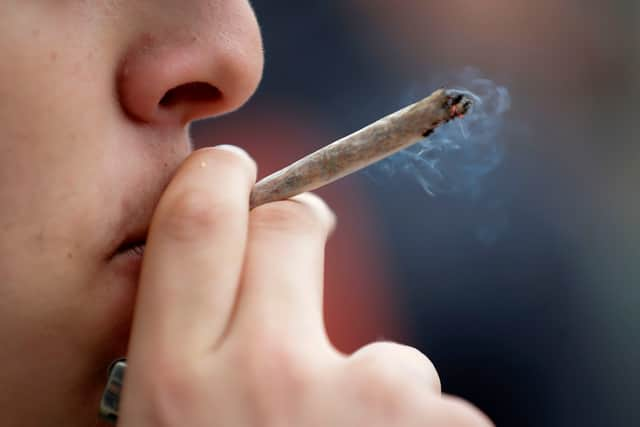Scottish government's call to decriminalise drugs rejected by PM maintaining "tough stance" on drugs
and live on Freeview channel 276
Rishi Sunak has rejected a motion by the Scottish government to decriminalise the possession of drugs.
Last week, Scotland's drugs policy minister, Elena Whitman, asked the UK government to devolve powers over drugs to the Scottish government or change the drug laws to allow for the possession of smaller quantities for personal use not to be a criminal offence.
Advertisement
Hide AdAdvertisement
Hide Ad

What was the report?
Published on 7 July, the paper says the current UK policy on drug possession and use “inhibits a public health approach”, and wants a reform to help people with drug problems to be better supported.
The report addressed that Scotland holds record drug deaths - which are 15 times more likely to affect the poorest 20% - as well as being the highest in Europe.
This crisis has prompted the Scottish government to invest £250 million, into the country's addiction services.
The paper, titled 'A Caring, Compassionate and Human Rights Informed Drug Policy for Scotland', called for the decriminalisation of personal drug possession, the expansion of harm reduction tools such as heroin-assisted treatment, supervised drug consumption facilities and drug checking, and a roadmap to explore legal regulation of drugs.
Advertisement
Hide AdAdvertisement
Hide Ad"We want to create a society where problematic drug use is treated as a health, not a criminal matter, reducing stigma and discrimination and enabling the person to recover and contribute positively to society,” said Scotland's drugs policy minister Elena Whitham.
She said that as a strategy to reduce drug use, “the global war on drugs has failed in its objectives”.
“To improve and save lives, we must be innovative, bold and radical. We are clear that nothing should be considered off the table. We must start by recognising that no country, anywhere in the world, has succeeded in eliminating drug use. A fairer, safer and healthier country must care about all its citizens and be inclusive of those with health conditions such as drug dependence.”
The paper said decriminalising small amounts of drugs for personal use “could provide a framework within which we can better pursue our existing policies to help, treat and support people rather than criminalise, stigmatise and fail them”.
Advertisement
Hide AdAdvertisement
Hide AdIt would also look at legalisation, saying: “Implementing a more evidence-based approach to drugs policy could be the basis for considering the potential of introducing regulated markets for the reduction of harm and the safe control of substances”.
What did the UK government say?
The prime minister quickly rejected the reform paper, with a spokesman saying Sunak was not planning to change the UK government's "tough stance" on drugs.
They said: "Illegal drugs destroy lives and devastate communities. We are committed to preventing drug use by supporting people through treatment and recovery and tackling the supply of illegal drugs, as set out in our 10-year Drugs Strategy.
“We have no plans to decriminalise drugs given the associated harms, including the risks posed by organised criminals, who will use any opportunity to operate an exploitative and violent business model.”
